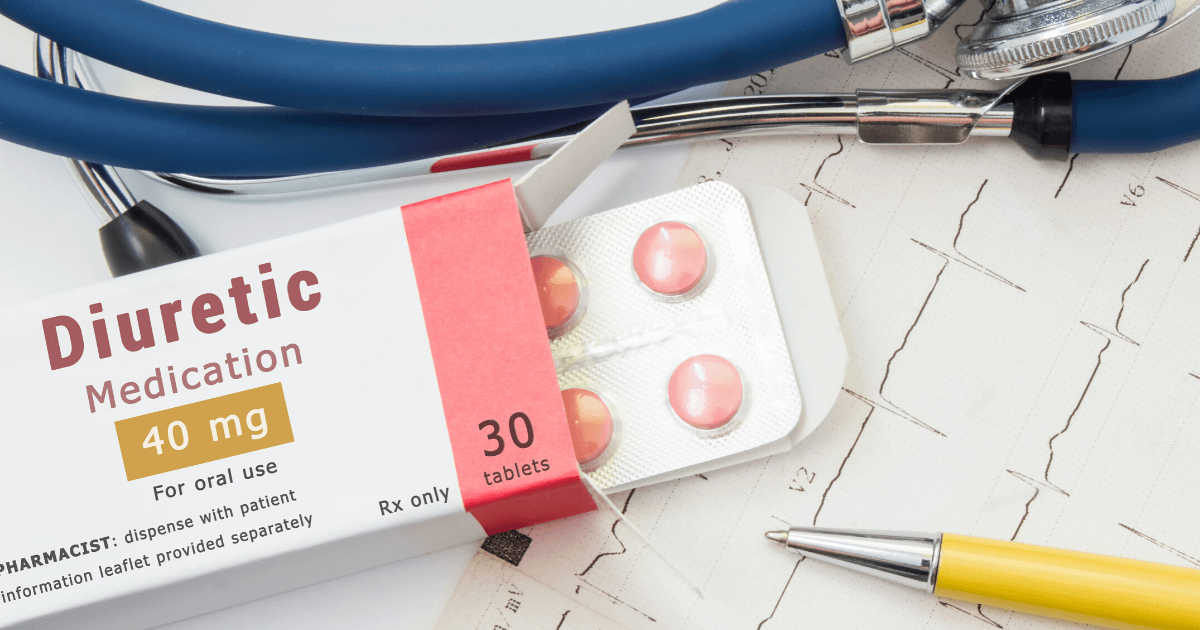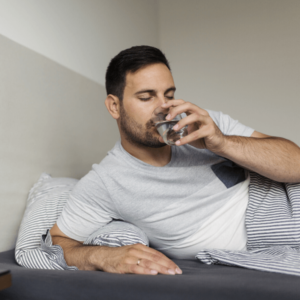Understanding The Causes of Nighttime Urinary Incontinence in Men

After a long tiring day, you have settled in bed under the covers for a restful night of sleep. But just as you start drifting off into dreamland, you feel sudden dampness between your legs. You’ve wet the bed – something you haven’t done since you were maybe five years old. If this sounds all too familiar, along with constant impromptu bathroom visits interrupting your sleep, you are not alone. Nearly 50 percent of adults aged 50 to 79 suffer from Nocturia, also known as nighttime incontinence. These constant visits to the bathroom can prevent you from getting a good night’s sleep and wreak havoc on your overall health. So, let’s learn about the causes of nighttime urinary incontinence in men.
What Causes Nighttime Bladder Leaking in Men?
Medications, health issues, and lifestyle choices can affect the presence of Nocturia in men. Aging is obviously a big factor among the other causes of nighttime urinary incontinence. The older you get, the less your body produces the hormone that tells your kidneys to hold in urine while you’re sleeping.

Also, the urinary bladder loses its natural elasticity with age. As you grow older, your bladder’s ability to hold onto urine for extended periods diminishes. As a result, you are forced to visit the bathroom multiple times in the middle of the night.
Research shows that Nocturia can affect the health and wellbeing of the patients. It can result in depression, fatigue, anxiety, poor memory, gastrointestinal issues, heart disease, and even increased risk of falling or losing your balance. After all, sleep is one of the most critical factors behind good health. Without enough restful sleep, your body is bound to suffer.
Additional Factors and Underlying Issues
Here are a few factors that can contribute to nighttime incontinence:
- Drinking too much caffeine and/or alcohol
- Drinking too many fluids right before bedtime
- Taking diuretics
Sometimes, Nocturia is simply a symptom of a greater problem, such as:
- High blood pressure
- Diabetes insipidus
- Diabetes mellitus
- Heart disease
- Insomnia or other sleep disorders
- Congestive heart failure
- Restless leg syndrome
- Vascular disease
Possible Remedies

If you are a sound sleeper, it is possible that you may not be able to get out of bed in time and are left with soaked sheets. Consider keeping a box of baby wipes on the bedside table and sleeping on a towel.
With a little preparation, you can ensure there is no urinary leakage when you are asleep:
- Don’t drink anything 2 to 3 hours before you go to bed.
- Avoid beverages and foods that can irritate your bladder.
- Avoid consuming salty foods three hours before your bedtime.
- Use male incontinence products while sleeping.
- Use waterproof sheet protectors or mattress covers to make cleaning up easier.
- Wear compression stockings. They apply pressure against your leg and reduce the pressure on your veins. As a result, fluids are redistributed and reabsorbed into your bloodstream.
In addition to following these tips, it is also important to talk to your doctor and rule out any serious underlying health issues. This a common issue that comes with aging, so don’t feel embarrassed to seek professional attention.
Fight Back Against Nighttime Incontinence With Men’s Liberty
Looking for a discreet, comfortable, and highly effective male UI solution? The unique Men’s Liberty product serves as a reliable alternative to the traditional external catheter. Call us at 888-412-9329 or visit us online to get your very own Men’s Liberty today.
